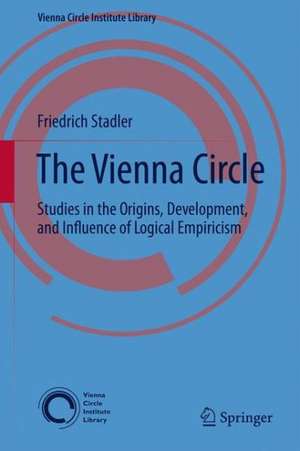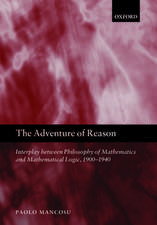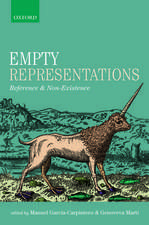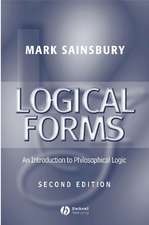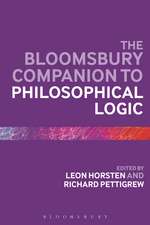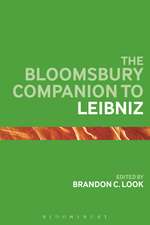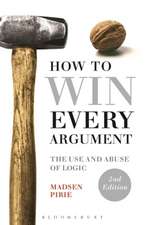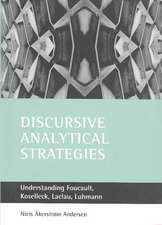The Vienna Circle: Studies in the Origins, Development, and Influence of Logical Empiricism: Vienna Circle Institute Library, cartea 4
Autor Friedrich Stadleren Limba Engleză Hardback – 21 mai 2015
The first part of the book focuses on the origins of Logical Empiricism before World War I and the development of the Vienna Circle in "Red Vienna" (with the "Verein Ernst Mach"), its fate during Austro-Fascism (Schlick's murder 1936) and its final expulsion by National-Socialism beginning with the "Anschluß" in 1938. It analyses the dynamics of the Schlick-Circle in the intellectual context of "late enlightenment" including the minutes of the meetings from 1930 on for the first time published and presents an extensive description of the meetings and international Unity of Science conferences between 1929 and 1941.
The chapters introduce the leading philosophers of the Schlick Circle (e.g., Hans Hahn, Otto Neurath, Rudolf Carnap, Philipp Frank, Felix Kaufmann, Edgar Zilsel) and describe the conflicting interaction between Moritz Schlick and Otto Neurath, the long term communication between Moritz Schlick, Friedrich Waismann and Ludwig Wittgenstein, as well as between the Vienna Circle with Heinrich Gomperz and Karl Popper. In addition, Karl Menger's "Mathematical Colloquium" with Kurt Gödel is presented as a parallel movement. The final chapter of this section describes the demise of the Vienna Circle andthe forced exodus of scientists and intellectuals from Austria. The second part of the book includes a bio-bibliographical documentation of the Vienna Circle members and for the first time of the assassination of Moritz Schlick in 1936, followed by an appendix comprising an extensive list of sources and literature.
| Toate formatele și edițiile | Preț | Express |
|---|---|---|
| Paperback (1) | 964.23 lei 6-8 săpt. | |
| Springer International Publishing – 9 oct 2016 | 964.23 lei 6-8 săpt. | |
| Hardback (1) | 970.70 lei 6-8 săpt. | |
| Springer International Publishing – 21 mai 2015 | 970.70 lei 6-8 săpt. |
Preț: 970.70 lei
Preț vechi: 1183.78 lei
-18% Nou
Puncte Express: 1456
Preț estimativ în valută:
185.77€ • 192.47$ • 155.04£
185.77€ • 192.47$ • 155.04£
Carte tipărită la comandă
Livrare economică 22 martie-05 aprilie
Preluare comenzi: 021 569.72.76
Specificații
ISBN-13: 9783319165608
ISBN-10: 3319165607
Pagini: 603
Ilustrații: XXXI, 681 p. 125 illus.
Dimensiuni: 155 x 235 x 43 mm
Greutate: 1.17 kg
Ediția:2015
Editura: Springer International Publishing
Colecția Springer
Seria Vienna Circle Institute Library
Locul publicării:Cham, Switzerland
ISBN-10: 3319165607
Pagini: 603
Ilustrații: XXXI, 681 p. 125 illus.
Dimensiuni: 155 x 235 x 43 mm
Greutate: 1.17 kg
Ediția:2015
Editura: Springer International Publishing
Colecția Springer
Seria Vienna Circle Institute Library
Locul publicării:Cham, Switzerland
Public țintă
ResearchCuprins
Preface to the 2nd English Edition.- Prologue: On the Rise of Scientific Philosophy – An Overview.- Chapter 1.The Origins of Logical Empiricism – Roots of the Vienna Circle before the First World War.- Part I: The Vienna Circle and Logical Empiricism Between The Wars – Emergence and Banishment.- Chapter 2. The Vienna Circle and Logical Empiricism in the First Republic.- Chapter 3.The Non-Public Phase of the Vienna Circle 1918–1928.- Chapter 4.The Public Phase of the Vienna Circle: From 1929 until the “Anschluss”.- Chapter 5. Karl Menger’s Vienna Circle: The Mathematical Colloquium 1928-1936.- Chapter 6. Wittgenstein and the Vienna Circle: Thought Style and Thought Collective.- Chapter 7. Heinrich Gomperz, Karl Popper, and the Vienna Circle – Between Demarcation and Family Resemblance.- Chapter 8. The Philosophical and Political Pluralism of the Vienna Circle – The Example of Otto Neurath and Moritz Schlick.- Chapter 9. The Role of the Universities and Institutionsof Adult Education – The Demise of Reason.- Chapter 10: Epilogue: The Exodus of Scientific Reason.- Part II: The Vienna Circle – The Biographical and Bibliographical Dimension.- Chapter 11: An Overview of the Vienna Circle.- Chapter 12. The Vienna Circle and its Periphery – Biographies and Bibliographies.- Chapter 13. Documentation: The Murder of Moritz Schlick.- Sources and Literature.- Index of Names.
Recenzii
“Stadler’s book is exactly what it promises: asort-of-a-handbook of LE providing incredible amount of material about itsphilosophical, social and cultural origins, its periodic development, and itsknown and hitherto unknown influence. … Stadler’s The Vienna Circle is anespecially important document. … Thus Stadler’s book is a must have.” (ÁdámTamás Tuboly, Philosophy in Review, Vol. 36 (1), February, 2016)
Notă biografică
Friedrich Stadler, Professor for History and Philosophy of Science, University of Vienna (Department of Philosophy and Department of Contemporary History), is the founder and head of the Institute Vienna Circle. He was President of the European Philosophy of Science Association (EPSA) 2009-2013 and a designated President of the Austrian Ludwig Wittgenstein Society (ALWS). Author of books on Ernst Mach and Logical Empiricism, as well as author of many articles and editor of books on the history and philosophy of science, intellectual history and emigration/exile studies. Series editor of the”Moritz Schlick Edition” (together with H.-J. Wendel) and the “Ernst Mach-Studienausgabe”, “Emigration – Exil – Kontinuität”, “The Philosophy of Science in a European Perspective” (together with M.C. Galavotti).
Textul de pe ultima copertă
This abridged and revised edition of the original book (Springer-Verlag Vienna, 2001) offers the only comprehensive history and documentation of the Vienna Circle based on new sources with an innovative historiographical approach to the study of science. With reference to previously unpublished archival material and more recent literature, it refutes a number of widespread clichés about "neo-positivism" or "logical positivism". Following some insights on the relation between the history of science and the philosophy of science, the book offers an accessible introduction to the complex subject of "the rise of scientific philosophy” in its socio-cultural background and European philosophical networks till the forced migration in the Anglo-Saxon world.
The first part of the book focuses on the origins of Logical Empiricism before World War I and the development of the Vienna Circle in "Red Vienna" (with the "Verein Ernst Mach"), its fate during Austro-Fascism (Schlick's murder 1936) and its final expulsion by National-Socialism beginning with the "Anschluß" in 1938. It analyses the dynamics of the Schlick-Circle in the intellectual context of "late enlightenment" including the minutes of the meetings from 1930 on for the first time published and presents an extensive description of the meetings and international Unity of Science conferences between 1929 and 1941.
The chapters introduce the leading philosophers of the Schlick Circle (e.g., Hans Hahn, Otto Neurath, Rudolf Carnap, Philipp Frank, Felix Kaufmann, Edgar Zilsel) and describe the conflicting interaction between Moritz Schlick and Otto Neurath, the long term communication between Moritz Schlick, Friedrich Waismann and Ludwig Wittgenstein, as well as between the Vienna Circle with Heinrich Gomperz and Karl Popper. In addition, Karl Menger's "Mathematical Colloquium" with Kurt Gödel is presented as a parallel movement. The final chapter of this section describes the demise of the Vienna Circle andthe forced exodus of scientists and intellectuals from Austria.The second part of the book includes a bio-bibliographical documentation of the Vienna Circle members and for the first time of the assassination of Moritz Schlick in 1936, followed by an appendix comprising an extensive list of sources and literature.
The first part of the book focuses on the origins of Logical Empiricism before World War I and the development of the Vienna Circle in "Red Vienna" (with the "Verein Ernst Mach"), its fate during Austro-Fascism (Schlick's murder 1936) and its final expulsion by National-Socialism beginning with the "Anschluß" in 1938. It analyses the dynamics of the Schlick-Circle in the intellectual context of "late enlightenment" including the minutes of the meetings from 1930 on for the first time published and presents an extensive description of the meetings and international Unity of Science conferences between 1929 and 1941.
The chapters introduce the leading philosophers of the Schlick Circle (e.g., Hans Hahn, Otto Neurath, Rudolf Carnap, Philipp Frank, Felix Kaufmann, Edgar Zilsel) and describe the conflicting interaction between Moritz Schlick and Otto Neurath, the long term communication between Moritz Schlick, Friedrich Waismann and Ludwig Wittgenstein, as well as between the Vienna Circle with Heinrich Gomperz and Karl Popper. In addition, Karl Menger's "Mathematical Colloquium" with Kurt Gödel is presented as a parallel movement. The final chapter of this section describes the demise of the Vienna Circle andthe forced exodus of scientists and intellectuals from Austria.The second part of the book includes a bio-bibliographical documentation of the Vienna Circle members and for the first time of the assassination of Moritz Schlick in 1936, followed by an appendix comprising an extensive list of sources and literature.
Caracteristici
Presents an exemplary study of the rise of scientific thought and its vicissitudes in this century Contains the protocols of the Schlick Circle and an interview with Karl Popper Is the only available comprehensive history of the Vienna Circle in context in English Includes supplementary material: sn.pub/extras
